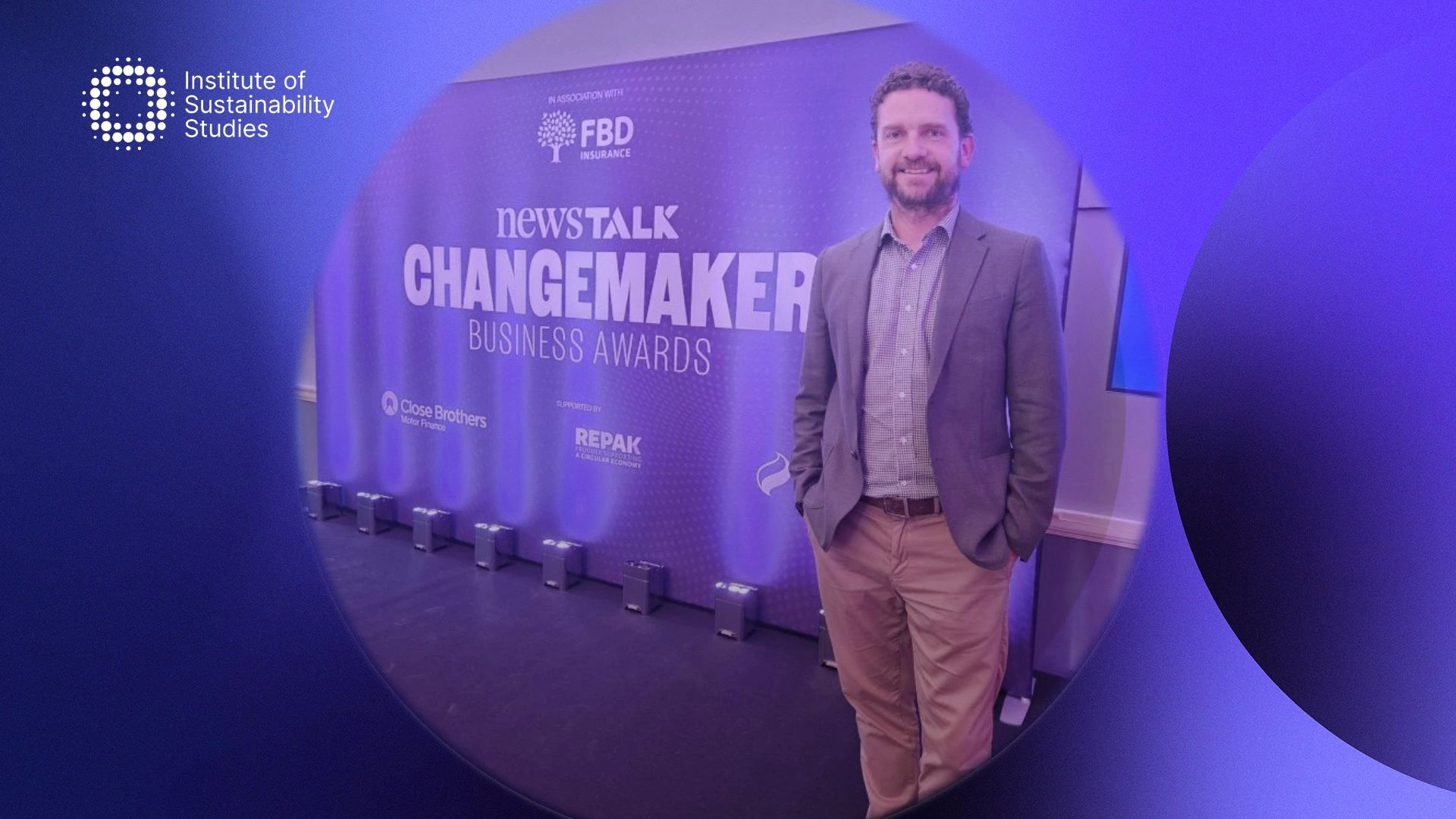Sustainability was once considered a ‘nice to have’ in business, but it is quickly becoming crucial as we struggle to effectively fight climate change. More and more organisations, big and small, are embracing the concept of more responsible business. However, some are a bit more apprehensive than others for fear that profit and sustainability do not go hand-in-hand. In saying that, it is possible for businesses to have excellent performance while doing good for the world. Sustainable business practices can pay off financially and offer many benefits, from enhanced efficiency to improved workflows, expanded audiences, and more. Continuing reading as we dive deep into what businesses need to do differently to be sustainable and profitable.
What is a sustainable and profitable business?
Sustainability in business refers to a company carrying out its usual operations without negatively affecting the planet, community, or society. Business sustainability typically addresses two primary categories – the effect business has on society and the effect business has on the planet.
The main objective of a sustainable business strategy is to create positive change in at least one of those areas. When businesses fail to assume responsibility, the opposite can happen. In other words, it can lead to issues like social injustice, environmental degradation, and inequality.
Business sustainability also considers a plethora of economic, social, and environmental factors when making business decisions. These businesses monitor the effects of their operations to make sure short-term profits do not transform into long-term liabilities.
A business sustainability strategy is unique to each company because they tie into its larger organisational values and business goals. However, there are some examples of business sustainability that most organisations adopt. Some of these include utilising eco-friendly materials in the manufacturing process, relying on renewable energy sources to power facilities, and optimising supply chains to limit greenhouse gas emissions.
The three main pillars of business sustainability are environmental, economic, and social responsibility. These three pillars are informally referred to as people, profits, purpose, and planet. Where the environment focuses on specific impacts of your operations on climate, social responsibility looks at diversity, inclusion, and human rights areas such as fair pay and workers’ rights.
Can sustainability be profitable for businesses?
Sustainability can be a very profitable move for businesses. A growing body of evidence indicates that sustainability practices can help to create business opportunities and profits. Below are some steps you need to take to make sustainability a profitable move for your business.
As with everything in business, embracing the idea of transitioning to a more responsible business begins with leadership. The CEO, the managers, and all of the senior team must embrace the concept. In saying that, to have everyone support it, the triple bottom line needs to be adopted at the top level.
What this means is sustainability has to become a primary reason why your business exists in the first place. For this to be the case, you must understand why sustainability makes sense for your business and industry. You have to work to become a player in the circular economy.
Secondly, don’t be afraid to bring in experts from outside of the company. Getting a team of business consultants to help with the green transition is a great idea. When you make changes to how you do business, it has a domino effect in that it impacts everything you do. Your operation changes, and how you market, position, and evolve your business does too.
Becoming more ethically mindful means even your HR practices need to transform. Therefore, outside experts can help you in each area by determining where you need to focus and establishing a road map for you. At the core of being sustainable and profitable is people.
To succeed at becoming a sustainable business, it takes the support and trust of your customers, team, and community. This means becoming more transparent and honest about what you are doing with your business and why you are doing it. Additionally, it means reporting to the broader community and your team about the changes happening and your efforts.
This will create the trust capital that drives an increase in profitability through environmentally conscious actions and practices. As a business leader, everything also has to be measurable and quantifiable. Therefore, as you shift each element and business line within your organisation toward an eco-friendly model, you need to measure and hold your people accountable for making it happen at each level.
You should also work at taking a systems approach. Recognising that sustainable production can be less expensive is hard for companies, but this is partially because you have to change the way you think about lowering costs. Sustainability is often an initial investment, but it will lead to great savings down the road and greater efficiency of the system as a whole.
While cost efficiencies are impressive, the growth that businesses in emerging markets obtain by extending their environmental efforts to the operations of their customers is even more intriguing. Businesses are establishing unique business models by boosting their customers’ buying power. Simultaneously, they are establishing interdependencies that are challenging for competitors to copy. Therefore, taking a broader view is essential to becoming sustainable and profitable.
How to be sustainable and profitable: creating your business strategy
Now that you have a greater understanding of business sustainability and how it can be profitable, let’s talk about how to be sustainable. Below are some tips which will help you build your sustainable business strategy so that you can establish a sustainable and profitable organisation.
Define your goals by assessing the issue
The very first step to creating your sustainability strategy will be to assess what sustainability means to your company, industry, team members, and clients. You should think of the big problems that each of these groups deems a priority.
To do this, ask yourself whether your hiring practices attract diverse candidates, how much waste your business is creating, what impact your business has on the local community, and more. Answering these kinds of questions will enable you to establish your organisation’s sustainability goals. Without goals, you cannot progress on your mission.
Get your employees and stakeholders involved
Following defining your goals, it is vital to get your stakeholders and employees involved in the process of creating a responsible business strategy. This is because they can be incredibly valuable resources. For instance, stakeholders often have much more knowledge about the needs of certain communities and can share ideas for creating change.
Additionally, these are people who are invested in the success of the business. Your employees also act as a valuable resource here. They work for the business and reside in the local community. This means they may have some ideas concerning the environmental issues you should focus on. Establishing some programmes or taking their ideas into account can inspire your employees to spark positive change in their daily activities too.
Ensure your goals are measurable and create your plan
Setting goals is one thing, but you want to ensure they are obtainable. One way to do this is to ensure they are both realistic and measurable. If they are not measurable, how can you track your progress? By the same token, if they are not realistic, how will you achieve them?
Your goals should become clear following a review of the issues within your company and where you could improve. Choose the ones you feel are most important and begin to create your sustainability strategy. Remember to set timelines for each action, initiative, and programme listed within your plan.
Don’t forget to track
The final step is to remember to track your progress to ensure the changes you are making are working. This will inform you as to whether the sustainability plan you have devised is effective. Knowing this can better position you to reach your goals.
If you are not meeting your goals, you can adjust your strategy as you need to. Remember, it is all a learning progress in the beginning, and the change will not occur overnight. You must allow some time for the change to happen and show your commitment by recognising it will take time.
Bring key decision-makers on board, especially your CFO
In many organisations, a major hurdle to advancing sustainability is gaining buy-in from the Chief Financial Officer. CFOs are responsible for protecting financial health and often view sustainability as a cost centre rather than a performance lever. To shift this mindset, it’s crucial to speak with them and frame sustainability in financial terms: reduced operating costs, stronger investor appeal, and increased profitability.
Summary
There is certainly a noticeable shift happening whereby businesses are prioritising climate action. In saying that, scepticism remains around the idea of being sustainable and profitable at the same time. A sustainable business strategy can lead to lots of improvements within the business that can reduce costs over time, improve efficiency, and help you attract and retain talent and acquire more customers.
The environmental case for sustainability is naturally strong, but so is the business case for sustainability. Businesses urgently need to act against the environmental crisis and be part of the solution. A major barrier is education, which is why we have created two expert-led programmes, which can be completed on a part-time basis that enable you to acquire all the knowledge necessary to kickstart your business sustainability journey. Enrol in one of our business sustainability courses today to ignite positive change!










